Testimonials from Recent Ph.D. Alumnae and Alumni
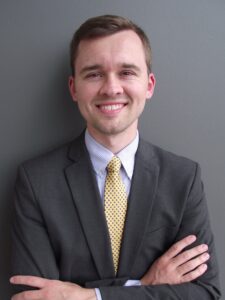 Ryan Talbert
Ryan Talbert
Ph.D. Date: 2020
Assistant Professor, University of Connecticut
Webpage: https://sociology.uconn.edu/person/ryan-talbert/
Research areas: health disparities, the social psychology of race and ethnicity, and punishment and inequality.
My current research utilizes quantitative methods and insights from multiple theoretical perspectives including the stress process model, life course theory, and intersectionality. Some of my ongoing projects examine the cardiovascular health impacts of being exposed to police killings of Black Americans, the mental health significance of proximity to public Confederate monuments, and the long-term health effects of Ku Klux Klan terrorism on communities. Additionally, my second line of research examines predictors and consequences of racial attitudes, racial discrimination, and racial identity. My colleagues and I have recently studied public support for Confederate monuments as well as the impact of Confederate monuments on white Americans’ racial identity. My third line of ongoing scholarship surveys outcomes associated with criminal justice contact. Within this area, coauthors and I recently examined how the incarceration of a family member factors into the mental health of Black women.
What I liked most about Vanderbilt’s Ph.D. program is the rigorous, unparalleled, and hands-on mentoring I received. The low student/faculty ratio is indicative of Vanderbilt’s approach to mentorship, and early in my Vanderbilt tenure, I found that faculty members were willing to read paper drafts, offer helpful feedback, and answer questions about the research process. At each transition through the sociology program from course work to completion of the dissertation, I benefited greatly from faculty carefully guiding my development as an independent scholar.
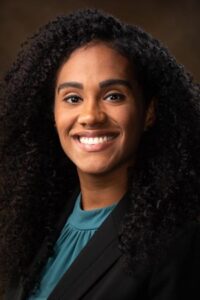 Brittany N. Hearne
Brittany N. Hearne
Ph.D. Date: 2018
Assistant Professor, University of Arkansas
Research Areas: Mental and Physical Health; Family; Race, Gender, and Class
I am currently working on projects at the nexus of depressive symptoms, family and romantic relationships, and race, gender, and class. Moreover, I have begun projects related to the coronavirus disease 2019 (COVID-19) pandemic. Across each project, I am interested in how physical and mental health outcomes are related to family relationships (parent-child, romantic relationships) and race, gender, and/or class. My recent work is published in Socius: Sociological Research for a Dynamic World , Ethnicity and Health, Marriage & Family Review, and Mobilization: An International Quarterly.
I enjoyed the mentorship I received during my time (2013-2018) as a graduate student in the Sociology Department at Vanderbilt. In fact, the publications I co-authored with faculty were truly collaborative projects that allowed me to learn a great deal about the research process. In addition to research and publication support, multiple faculty members supported me throughout my time in the department. It was fairly common to receive offers to read my writing or discuss research ideas. Generally, I felt included and supported in the department.
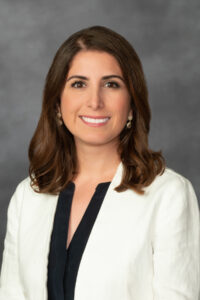 Gabriela Leon-Perez
Gabriela Leon-Perez
Ph.D. Date: 2018
Assistant Professor, Virginia Commonwealth University
Webpage: https://sociology.vcu.edu/people/faculty/leon-perez.html
Research areas: Mexican internal and international migration, racial/ethnic health disparities, and the experiences of Latino immigrants in the United States.
I am currently collaborating on project that combines data collected in Mexico and in the US to compare the physical and mental health of Mexican-origin individuals living on both sides of the border. Two other projects focus on the experiences and outcomes of Latino immigrants in Richmond, Virginia: the first involves a qualitative analysis of interviews conducted by a local museum and the second is a study of preterm births among foreign- and US-born Latinas.
My experience at Vanderbilt was both challenging and rewarding. I especially appreciated the research mentorship and opportunities for collaborations with faculty inside and outside of the department. This allowed me to have hands-on experience in all stages of the research process and, later, the publication process. Thanks to this, to was able to have several peer-reviewed publications by the time I went on the job market.
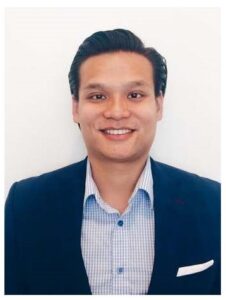 Quan D. Mai
Quan D. Mai
Ph.D. Date: 2018
Assistant Professor, Rutgers University-New Brunswick
Webpage: https://sociology.rutgers.edu/people/faculty/core-department-faculty/809-mai-quan
Research areas: social stratification, sociology of labor markets, work and occupations, labor movements, environmental sociology, and research methods.
Broadly speaking, I am interested in how a range of social relations—including racial relations, employment relations, state regulatory capacity and social movements—combine in the economy, polity, and in urban spaces to influence processes of social stratification. My current projects deal with various consequences of nonstandard employment in the new economy. In a series of projects, I’m looking at how the experience of precarious work dampens workers’ chances of getting a job, negatively affects their well-being, and shapes their transition to adulthood.
I absolutely love the Ph.D. program at Vandy. I can honestly say that I spent some of the best years of my life being a graduate student in Garland Hall. The mentorship that I received is unparalleled, and I will be forever indebted to my mentors at Vandy. They not only took me under their wings but also led by examples in showing me how to operate as a respected scholar, caring teacher, generous mentor, collegial community-member, and kind human being. I also enjoyed the great camaraderie among graduate students. I made some lifelong friendships at Vandy, and this is a strong network of support that I lean on in tough times.
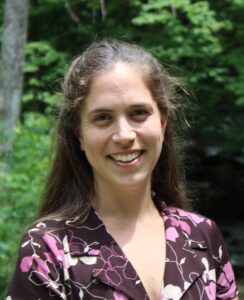 Kate P. Brown
Kate P. Brown
Ph.D. Date: 2015
Assistant Professor, Georgia Institute of Technology
Webpage: https://www.iac.gatech.edu/people/faculty/brown_2
Research Areas: Environmental Sociology, Political Sociology, Social Theory
I am keenly interested in questions of power, and I investigate these in relation to the human-environment nexus. My major project to date is a study of the interactions between activists, corporations, and the government over the protection of Siberia’s Lake Baikal – the deepest and most voluminous lake on Earth. This research project resulted in a book, Saving the Sacred Sea: The Power of Civil Society in an Age of Authoritarianism and Globalization (Oxford University Press 2018). I also participated in two NSF-funded collaborative projects on green energy and water conservation, respectively. I am currently studying the “nuclear renaissance” in the southeastern United States, particularly the financial and legal frameworks that enabled this short-lived boom. In the near future, I intend to return to the Lake Baikal region to examine how nature is deployed in boundary-maintenance between Siberia, European Russia, and an increasingly powerful China.
The sociology program at Vanderbilt University was the perfect place to nurture my career. In addition to being excellent scholars, the faculty at Vanderbilt care about teaching and mentorship. They make themselves accessible to graduate students and they treat them with collegiality and respect. They gave me quality training in the skills I would need to succeed, as well as providing me the space I needed to pursue my own research interests. I had access to a wealth of resources and I felt both fully supported and completely independent every step of the way. By the end, I had the confidence and accomplishments to move smoothly into a faculty position. I am very grateful to Vanderbilt University and the Department of Sociology for helping my career to flourish.
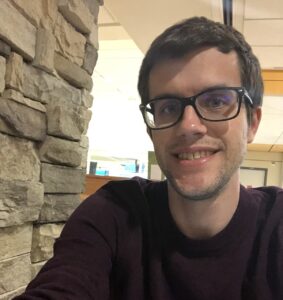 Jonathan S. Coley
Jonathan S. Coley
Ph.D. Date: 2015
Assistant Professor, Oklahoma State University
Webpage: https://sociology.okstate.edu/people/faculty/327-jonathan-coley
Research areas: Social movements, political sociology, sociology of religion, gender and sexuality, race and ethnicity, sociological theory
I have recently launched two major new research projects. The first project focuses on student activism at U.S. colleges and universities. Specifically, along with a few Oklahoma State University graduate students, I have collected data on the presence of 16 different social, political, and religious student organizations across all 1,953 four-year, not-for-profit colleges and universities in the United States. I have developed a new theory of educational opportunity structures, which suggests that certain characteristics of colleges and universities make them more or less conducive to student mobilization. My second new project focuses on local-level church-state relations in the United States. Specifically, my collaborators at Penn State University, Colby College, and Loyola Marymount University and I have interviewed nearly 150 religious leaders across six U.S. cities to understand why religious leaders sometimes interact with government officials and whether certain issues tend to generate conflict with government officials. We are soon hoping to carry out similar interviews with government officials.
My experience at Vanderbilt was phenomenal. I came into the program with strong interests in social movements, and Vanderbilt proved to be a great fit for me, as I was able to work closely with several of the country’s top social movement scholars on their oral history research project on the Nashville civil rights movement, which has resulted in publications in six peer-reviewed journals. However, not only was I able to closely work with faculty on their own research projects, but Vanderbilt’s faculty also strongly supported my efforts to become an independent scholar. Beginning in my first year at Vanderbilt, I started collecting data on LGBTQ activism at Christian colleges and universities in the United States. Thanks to the helpful mentoring of Vanderbilt’s faculty, by the time I went on the job market, I had secured a contract to write a book on this topic and had published articles on this topic in several peer-reviewed journals. I cannot recommend Vanderbilt’s sociology program highly enough.
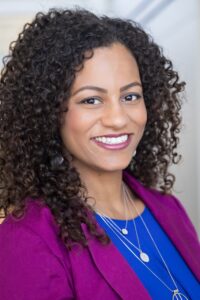 Whitney Pirtle
Whitney Pirtle
Ph.D. Date: 2014
Assistant Professor, Director of the Sociology of Health and Equity (SHE) Lab, McArthur Foundation Chair in International Justice and Human Rights, University of California, Merced
Webpage: https://www.ucmerced.edu/content/whitney-laster-pirtle
Research areas: race and ethnicity, social stratification, social psychology, sociology of health and illness
My research explores issues relating to race, identity, inequality, health equity, and Black feminist praxis. My work has been published in academic journals such as Ethnic & Racial Studies, Social Science & Medicine, and Sociology of Race and Ethnicity, as well as public media websites such as The Atlantic, Huffington Post and Feminist Wire. I am currently completing a book manuscript that explores the formation and transformation of the “coloured” racial group in post-apartheid South Africa and continue to produce research on racial disparities in Covid-19. In addition, my co-edited volume Black Feminist Sociology: Perspectives and Praxis is forthcoming with Routledge Spring 2021. I recently won the 2020 A. Wade Smith Award for Teaching, Mentoring, and Service from the Association of Black Sociologists.
I am a proud graduate of Vanderbilt Sociology. I appreciated the dedicated training I received through small graduate cohorts and classes, and by having such willing faculty to provide close mentorship. I learned a lot through the ample teaching and research assistantships, and was supported to do collaborative and independent research during my time. My ideas were nurtured and supported. I also benefited by taking classes in other departments, such as the Department of African and African Diaspora studies. The clear departmental expectations and funding package made graduating in six years feasible. I grew to love Nashville and the broad intellectual and creative communities that surround the area.